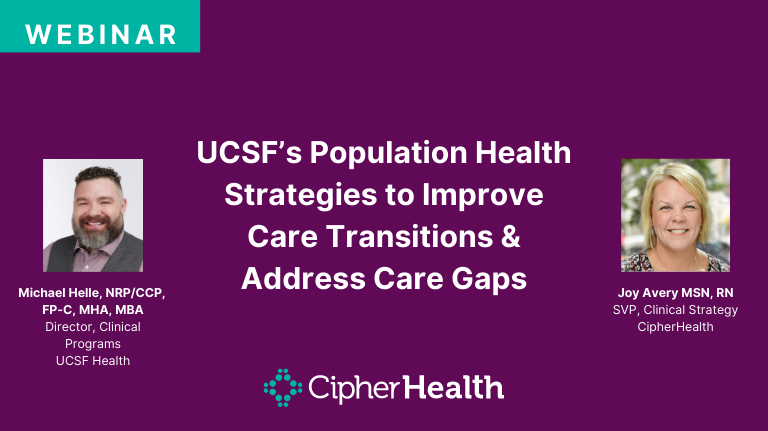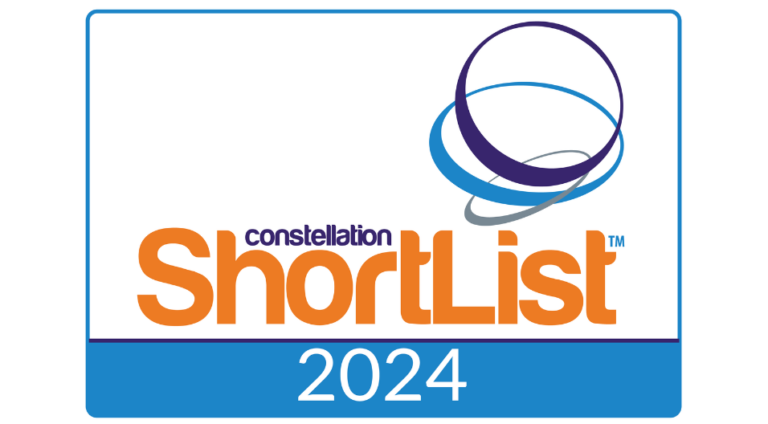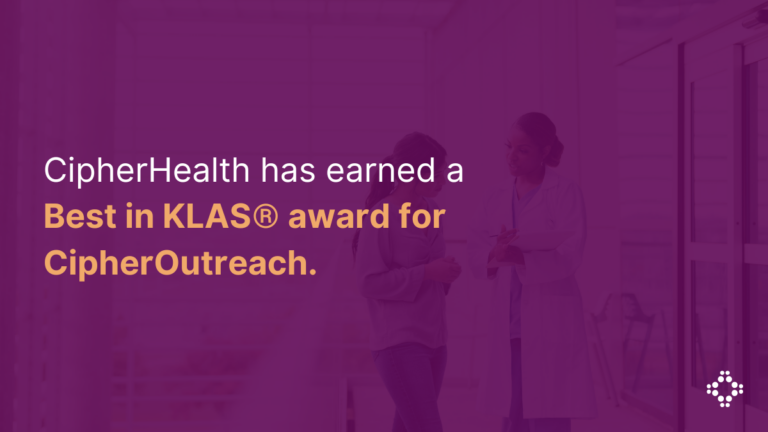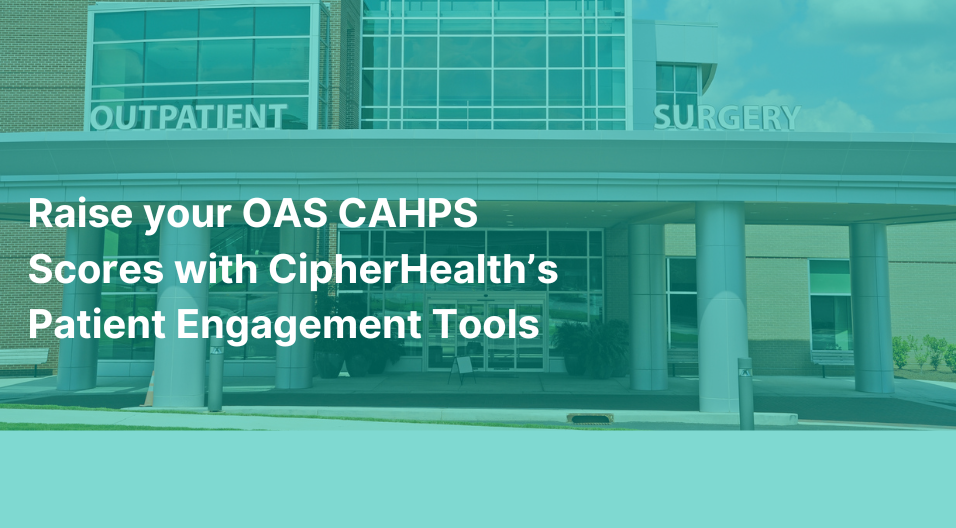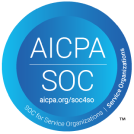CipherHealth team members recently attended the NAACOS Spring Conference in Baltimore and were privileged to speak with representatives from the accountable care organizations (ACOs) that are driving the shift to value-based care as well as attend a number of educational sessions. From these interactions, we learned that ACOs are contending with many of the same key challenges, including: CMS’s latest rule and adapting their organizations to take on greater risk; utilizing technology and emerging innovations to improve outcomes and drive higher performance; and mitigating Social Determinants of Health (SDoH).
This last challenge resonated deeply with us, as we know that many of the provider organizations that we partner with struggle to manage both the clinical and social factors that impact the extent to which patients remain healthy or on the path to recovery. The NAACOS conference reaffirmed the importance of this issue and highlighted opportunity areas for ACOs to improve how SDoH are identified and addressed.
The Importance of Addressing Social Determinants of Health
From a financial and process standpoint, there is a critical importance to address Social Determinants of Health (SDoH) factors in terms of improving healthcare outcomes. According to the American Medical Association and Kaiser Family Foundation, SDoH factors account for 40% of a patient’s health and are deeply linked to causes of premature death. This is misaligned with the realities of healthcare spending, however, which is predominantly focused on sick care, rather than preventive and public health measures.
As attendees and presenters discussed, it would be beneficial for healthcare organizations to increase investments in supporting the communities they serve as well as efforts that address SDoH factors, such as food and nutrition, physical activity, and treating substance use disorders.
Challenges and Opportunities Facing ACOs
There are a number of shared challenges across ACOs as well as areas for improvement and innovation to support successful Social Determinants of Health (SDoH) initiatives:
Regulations and Reimbursements
ACOs participate in a variety of value-based contracts that require them to measure and report on various metrics, prioritize different investments, and develop and support a wide array of community partnerships. Much of the work that ACOs do to impact outcomes are tied to reimbursements, so there is a clear need for instituting metrics and reimbursements to support SDoH initiatives within value-based contacts, such as implementing standardized preventive screenings.
Creating Partnerships with the Right Community Partners
Conference attendees stressed the importance of increasing access and connectivity to community resources that can help improve patient outcomes by addressing SDoH factors. Identifying the right partners, tracking resources, and creating partnerships and workflows is key to better equipping ACOs to tackle SDoH at scale.
In order to create the right partnerships, ACOs need to understand the different services and support systems required by their different population groups. The right partnerships are key to identifying which community-based organizations (CBOs) would be best to accomplish goals such as streamlining access to care. ACOs are accomplishing this task by implementing needs assessments and individual surveys to determine the right community partnerships to forge and services to introduce.
Implementing Standardized Workflows and Processes
In order to support individuals addressing SDoH factors, ACOs need to have adequate staffing resources in place and customized communication to reflect various populations and backgrounds. ACO teams, including physicians, nurses, care managers, home care and SNF teams, and office staff need to be aligned towards a common goal of consistent communication and support in addressing SDoH factors linked to healthcare. Within ACO care teams, there are numerous staff members who are well-positioned to recognize the presence of these conditions. Having standard roles, workflows, guidelines, and education for staff in place to recognize the presence of SDoH and support individuals’ adherence to certain behaviors and services will drastically improve ACOs’ ability to help address SDoH factors and improve overall health outcomes.
Accessing and sharing SDoH-related data enables ACOs to measure metrics and outcomes, evaluate the impact of various initiatives, and reduce the rate of redundancy. Determining the correlation between SDoH-related initiatives and outcomes, however, is challenging due to the fact that there are so many overlapping conditions at play. Additionally, this requires self-reporting from individuals and standard, consistent data collection and feedback. Collecting and assessing relevant information across teams was a key area of improvement presented at the conference, and the value of instituting centralized data collection to support SDoH screenings, referrals, and outcomes was emphasized at the conference.
How Technology Will Help ACOs Address SDoH
To accelerate progress toward initiatives focused on addressing some of these Social Determinants of Health (SDoH) opportunity areas, ACOs can better leverage technology. Specifically, ACOs can use digital tools to support community partner referral management and drive standardization across the organization.
Generally speaking, technology, not necessarily an EMR, can help ACOs maintain a resource of applicable community partners, and track and manage referrals made to organizations offering services to help address patient SDoH factors. This is crucial to addressing SDoH because it enhances connectivity to valuable resources in the community and closes the loop between the identification of resources, referrals, and use of these services. It also gives ACOs access to up-to-date and actionable data to ensure patients remain on the path to recovery.
ACOs can also use digital tools aimed at enhancing communication to conduct regular surveys and assessments of patients to collect PROs and glean valuable insights, as well as inform patients of resources being offered and partnerships in the community. These efforts can be self-administered, which is particularly valuable when it comes to SDoH factors, as some of this information is highly sensitive and personal. In terms of delivery, point of care and automated outreach solutions can support these efforts.
It Will Take a Village
While it was encouraging for us to hear so much chatter around Social Determinants of Health (SDoH) at the NAACOS Spring Conference, it was made clear that there is much to be done for providers to be able to effectively address all of the factors that impact patients’ health. To get there, it will require close collaboration between stakeholder groups, including providers, public agencies, payers, and community partners, as well as choosing the right technology to underpin these efforts. Until then, it’s important that SDoH remains a key topic in public healthcare discourse, and we’re excited to see the role that ACOs will play in driving meaningful change.
